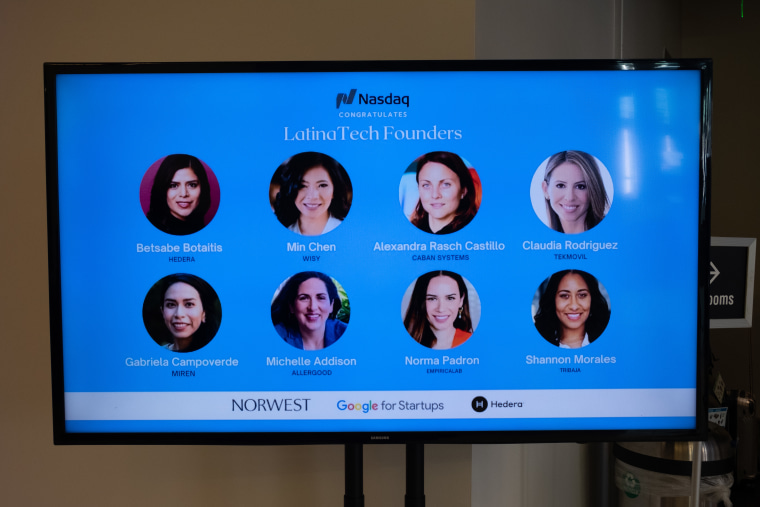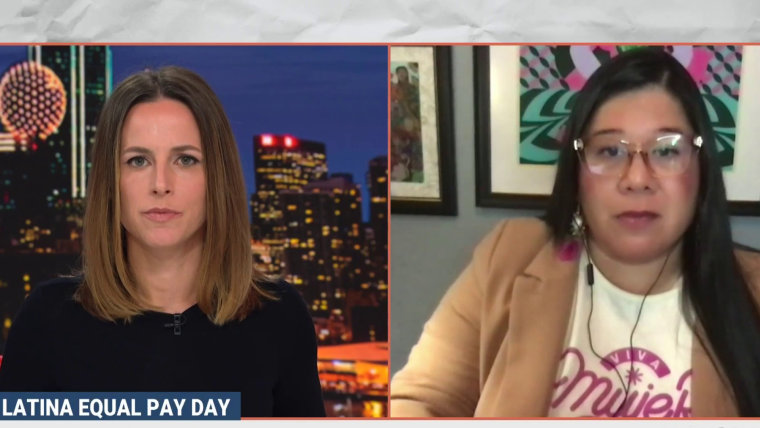Latinos start more businesses per capita than any other racial group in the United States. Yet, they receive less than two percent of venture capital funding. Of all Latino-owned businesses, 40 percent of them are owned by women.
For venture capital companies, this might mean leaving a significant amount of money on the table. In fact, The National Women’s Business Council estimates that the revenue from Latina-owned businesses is close to $78.7 billion.
The venture capital funding crisis for Latina founders was a central theme at a recent Latinas in Tech event at the Nasdaq in San Francisco. The event, hosted by Sandra Campos, former CEO of Diane von Furstenberg, Stacy Berns, founder of public relations firm Berns Communication Group, and Sandra Lopez, chief marketing officer for Microsoft Advertising, brought together influential venture capitalists and Latina tech founders.
“It’s important to get people in the [same] room [who]connect the dots between disruptive founders[and] investors looking for the next great deal,” Campos told Know Your Value.
One of the key takeaways from the event was that venture capital firms “are actively looking to invest in founders from underrepresented backgrounds,” said Jeff Crowe, a senior managing partner at Norwest Venture Partners. Norwest has more than 65 women-led companies in its portfolio, including footwear brand Birdies and the venture fund, Chingona Ventures – both founded by Latina entrepreneurs.

So why aren’t Latina founders getting as much venture capital funds as their counterparts?
Samara Mejia Hernandez, the founder of Chingona Ventures, has been on both sides of fundraising and said access to networks is crucial. She noted that many Latinas often lack built-in networks, which can make it harder to meet key investors.
Without those networks, Latinas often must prove themselves by using their own capital to fund their businesses. “So many founders that are minority women have to bootstrap on their own, just to get attention in a first meeting,” Mejia Hernandez said. According to one Stanford Graduate School of Business report, when Latino entrepreneurs start a business, 70 percent of their funding comes from personal savings.

That was the case for Sandra Velasquez, founder of the Mexican-inspired beauty brand, Napolera. Velasquez, a former musician, said one of the biggest challenges at the beginning was “starting from the outside. I had no contacts, no network,” she said. Velasquez applied to several accelerator programs, which are offered by companies to help founders navigate their new businesses. She was accepted in one program, and had the opportunity to pitch 10 investors at once.
“Once you meet one, you meet three, because you ask them for introductions, and it just continues to snowball,” she said. But even then, she experienced trouble getting funding. “I learned that somehow a million dollars is like the magic number. Nobody really wants to talk to you until you reach one million in revenue.” Velasquez wasn’t far off. In her first year, she managed to make $600,000 in revenue on her own – yet still had trouble convincing investors. “The only reason we didn’t do one million dollars is because I didn’t have any money to make more products and market them. Imagine if I had started with money.”
Thanks to an investment from L’ATTITUDE Ventures, a fund that exclusively invests in Latino/a-owned businesses, she secured a $2.7 million dollar investment in 2022 that allowed her to build a team and make enough products for national retailers, including Nordstrom’s, Credo Beauty, Whole Foods, and Free People.
Yet, Latino-led venture funds like L’ATTITUDE Ventures are limited. According to one report, Latino venture capital investors represent just two percent of the industry. Before that investment, Velasquez said she had to convince many venture capitalists – who were often white and male – that her brand although inspired by her Latinx culture “had global appeal.”
“Everyone has bias’,” said Mejia Hernandez. “Where it affects funding is, especially earlier, when you don’t have traction and revenue.” It’s one of the reasons why she created her own fund that focuses on underrepresented founders.
Campos said showcasing success stories of Latinas is also crucial. In addition, gathering investors, founders, and press all in one place, not only gives greater visibility to Latina founders who are deserving of big investment dollars, but it shows investors why it’s a strategic partnership. And not just because they’re Latina founders, but because they’ve built great businesses. “It’s all about access,” said Campos.
Credit: Source link



Comments are closed.